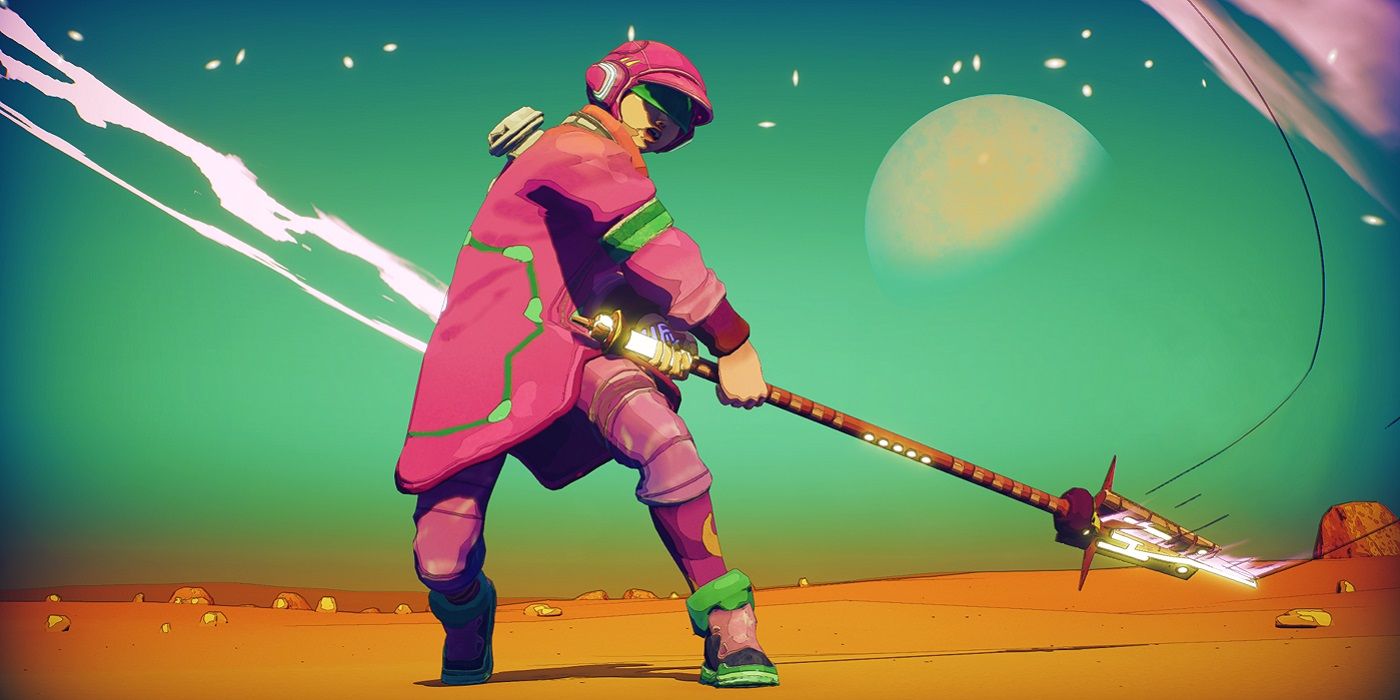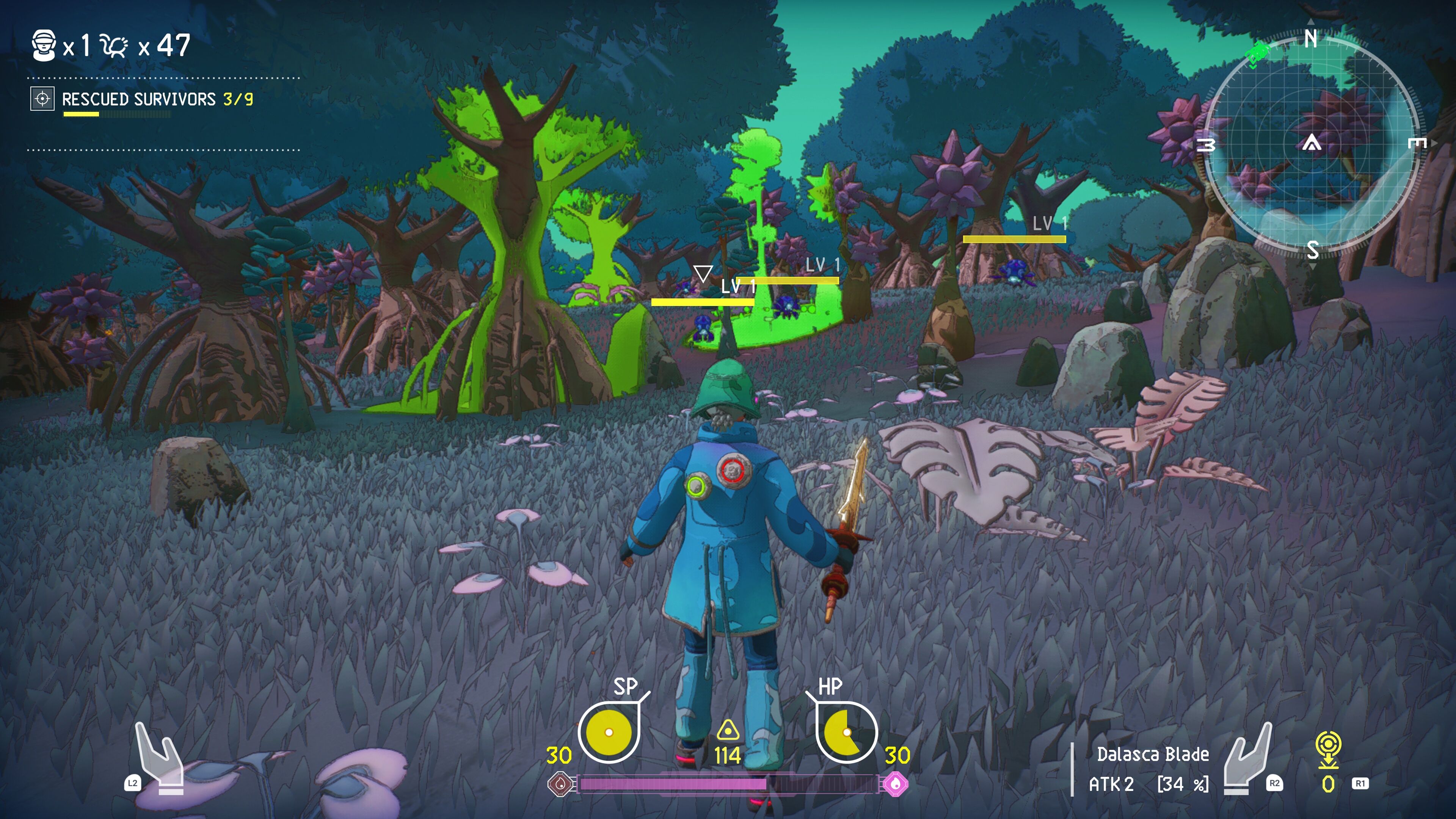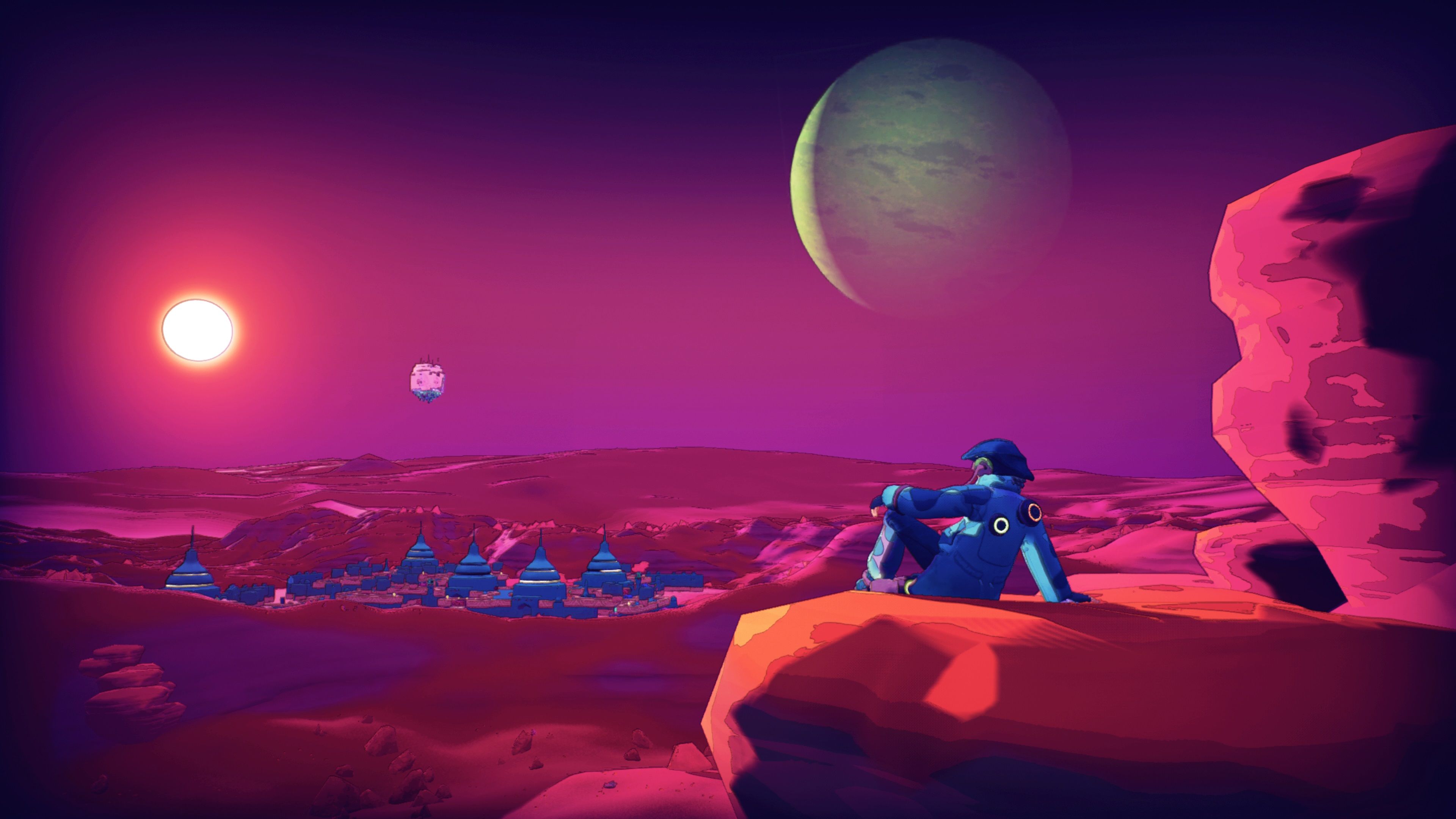While many found the recent news of Google pulling the plug on Stadia's internal development to be inevitable, it's still quite a disappointment. Outside of pure technological curiosity, Stadia hasn't offered much to entice gamers as far as exclusives outside of a few very small indie games and the return of Orcs Must Die! Developer Q-Games has changed that just a bit with PixelJunk Raiders, a spacefaring roguelike action game that integrates one of Google's promised Stadia features to great effect. Unfortunately, integration may be the most interesting thing about this colorful but rote adventure.
Players take control of an avatar warping onto alien worlds to save their residents from invading squid creatures. Starting off with just bare fists as weapons, players can soon scrounge up light swords, war hammers, and mines from the environment. They'll need all the help they can get because PixelJunk Raiders cranks up the difficulty with reckless abandon on several occasions. Combat is as complicated as players want it to be thanks to an upgrade system that grants double jumps, aerial strikes, dual sword-wielding, and more. While they all provide flourish to the ongoing action, most of the combat still feels rather mashy, requiring just a few well-timed dodges combined with flurries of strikes whenever possible. This combined with the flood of enemies that promptly arrive in any situation can make scenarios go from tense to drawn out very quickly.
Giant swarms of enemies will also eat through a player's weapon inventory, which is limited both by weapon degradation and rarity. Players without weapons are basically useless in any group fight, so they'll have to wander around the edges of the map looking for chests and weapon drops far away from the main mission objectives. Getting on a roll and leveling up can provide a good supply of weapons to use, but dying takes them all away and forces the player to wander again. It turns what should be bite-sized missions into grueling scavenger hunts where the end goal is getting to play the main game again.
Outside of the melee weapons, players can deploy turrets, mines, and minions to fight alongside them, and these items are the key to PixelJunk Raiders' support of State Share. Whenever a player takes a screenshot while playing, Stadia also saves the procedurally generated mission. Players can send the link to their mission to their friends or on social media, and anyone who plays through that link will instantly start the same mission with the original player's deployable items intact. In theory, this is a great community feature, but it does require an initially big audience to really make it work. Sharing between friends has its uses, but the feature mostly stands as an impressive proof of concept that another game will likely run with years down the line. Each level also has a three-word name that players can reproduce in a level generation tool, which makes it seem like the developers can work around the Stadia-specific tech to share levels in a future release on Steam or consoles.
Of course, all these interesting community features rely on levels standing out from each other, which isn't really something that PixelJunk Raiders accomplishes. Q-Games does implement a standout style here, featuring colorful graphics and harsh buzzy audio that reflects broadcasts from distant stars. It also has intense boss battles that really make the combat mechanics come together. Enemies swarm the player at untold numbers alongside ground-shaking boss attacks, all in a tiny arena with plenty of weapon pickups. These fights really benefit from PixelJunk Raider's mixture of hack and slash combat and dodge rolls, briefly turning the experience into something that's truly worth paying attention to.
From an academic sense, there is a lot to like about PixelJunk Raiders, but not enough to overcome its obvious shortcomings. Combat slowly gets interesting over time, but hunting for weapons never feels like anything but filler. Levels change color schemes, but the objectives mostly remain static and encourage going through the motions to grind out experience and rewards. There aren't any treasure rooms or weird run-specific perks to make missions stand out, and the support of Stadia's State Share feels like a tech demo rather than something anyone would actually use. Google is still searching for a killer app for its cloud platform, and it's sad to say that the latest from Q-Games just doesn't fit the bill.
PixelJunk Raiders is available now on Google Stadia. Screen Rant played PixelJunk Raiders through a Stadia Pro subscription for the purposes of this review.



